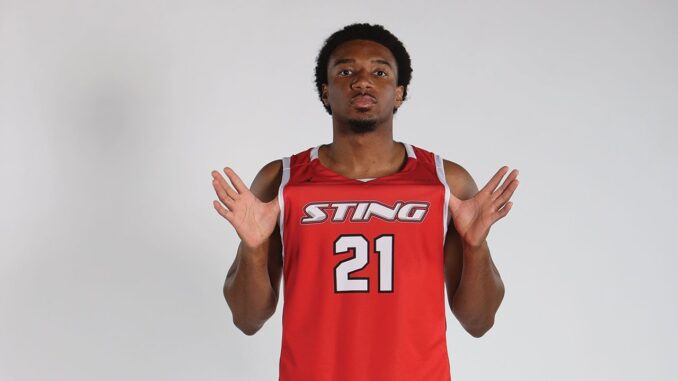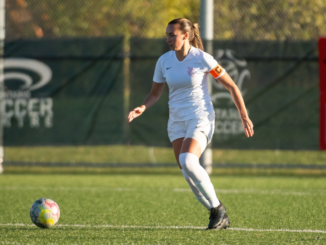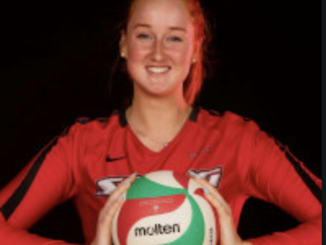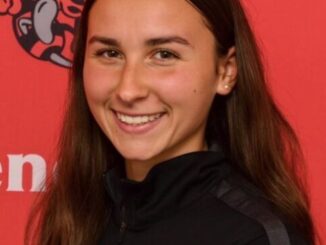
By: Adam El-Zein (video), Tharsha Ravichakaravarthy (article)
Elijah Green’s dreams of playing professional basketball began as a child. “I started pretty young, when I was about six years old shooting around with my grandfather. I was on an actual team starting around nine years old.”
He was inspired by the greats before him. “I credit Vince Carter. That was around the year 2000. I kind of fell in love with this game and once I saw what he was doing I realized I wanted to do that.”
Suneel Joshi, veteran sports broadcaster says data is central to sports like basketball, from drafting players to maximizing the potential of a team.
“The general statistics information that you would use is minutes played in a game,” says Joshi. “What his physical conditioning is like based on the number of minutes, let’s say, in university or college.”
More Canadians are making it pro. In 2023, a record 28 people from Canada were on the NBA roster.
Canada has the most number of players in the NBA outside of the United States of America.
Putting in the Work
Elijah Green is on the Varsity men’s basketball team here at Seneca. He’s also pursuing journalism to stay near what he loves in another way. “I would watch a lot of sports media on the daily and it was taking up a lot of my leisure time.”
"I’ve got to humble myself to realize I am not there yet." - Elijah Green
Green says the majority of his time and energy is spent in preparation. He says, “you got to be diligent with the work. You got to put in the work every single day to get 1% better, but you have to do the right type of work. You have to study the greats and implement that every single day sometimes two/three times a day.”
Getting Noticed

In the NBA, a draft pick refers to a system in which basketball players are employed to play for a team. In Canada, there have been a total of 65 drafts since 1946.
“Scouts are hired by the team and they will go to games in, say, Seneca or York or U of T, sit there, watch all games,” says Joshi about how players can become drafting prospects. He says the scouters typically go to watch one player and not the entire team. “If you took an ISO cam and all you did was saw one player’s movements. That’s how a scout is watching.”
“Does he have the ball in his hands. When he doesn’t have the ball in his hands where does he go? Where does she go? Is she helping her teammates to make sure they’re in the right position,” says Joshi about how a scout evaluates players before they are chosen to join a professional team like the National Basketball Association.
Green’s current goal is to be a top player in the Ontario Colleges Athletic Association (OCAA). “You want to be a standout player so you have to have a good team and you have to have great individual stats,” said Green. “You really have to perform at a high level.”
Data on Player’s Abilities
Synergy is a database that every player has access to. “It is a huge database for professional and college players. Advanced stats, basic stats, like points, rebounds, assists, everything,” says Green. “I follow that to see where my deficiencies are, what I need to work on, see what I’m already strong at and just keep working on those things.”
“You’re dealing with five players on a basketball course, so how can a coach get the most out of those five players,” says Joshi. “That’s when you decide with the database.”
Elijah Green | #21 | Seneca
| STATISTICS CATEGORY | OVERALL |
| Games | 16 |
| Games started | 1 |
| Minutes | 257 |
| Minutes per game | 16.1 |
| FG | 40-110 |
| FG Pct | 36.4 |
| 3PT | 10-38 |
| 3PT Pct | 26.3 |
| FT | 29-36 |
| FT Pct | 80.6 |
| Off rebounds | 22 |
| Def rebounds | 48 |
| Total rebounds | 70 |
| Rebounds per game | 4.4 |
| Personal fouls | 22 |
| Disqualifications | 1 |
| Assists | 10 |
| Turnovers | 18 |
| Assist to turnover ratio | 0.6 |
| Steals | 9 |
| Blocks | 7 |
| Points | 119 |
| Points per game | 7.4 |
| Points per 40 min | 18.5 |
The table above is the player statistics for Elijah Green. From top to bottom, it means the number of games played, the number of games started, total minutes played, average minutes per game, field goals, successful field goal percentage, 3-pointers, successful 3-pointers percentage, retrieving a ball after a missed field goal, number of times the defending team gained possession of the ball after a rebound, etc.
Qualitative data is also used to evaluate a player. “A coach wants to know that you are, one, responsible, you’re dedicated, and they need to know your personality. How you take care of yourself outside of the sport is going to leak into what you do in the sport.”
Joshi echoes the significance of being a team player. “A good scout will talk to teammates, talk to coaches, talk to team personnel, talk to opponents even to say, 'you know what it’s like to go against this person?'”
“They want to know what kind of person you are. You want to be coachable,” says Green. “There’s a lot of talented people out there but if they can’t coach you, then there’s no point.”
Managing Failure
A handful of Canadians get drafted into the NBA per year, and the numbers have increased significantly over the last decade.
Currently, there are 27 players in the NBA who were born and raised in Canada.
“The more competitive it gets, you’re not going to win everything. So, you’ve got to live with that. But, the best way to live with it, to handle failure, is to know you are working as hard as you possibly can," says Green. “If you don’t put in the work and you lose, then you know you left something on the table and you are not going to feel good about it.”
Green says that failure is an opportunity to better oneself. “If I give it my all and it just wasn’t good enough that day, I can live with it, go back to the lab, get better and hopefully win the next one.”
Green says injuries can be the greatest obstacle for high-performance athletes. “We all get injured. I’ve broken my ankle before, tore up the ligaments, I’ve torn up my shoulder and it’s taken me out of the game before.”
“People don’t understand the mental battles you have to face. Especially, with the body you are so used to doing things naturally. But when you come off an injury you have to reteach yourself the basics and it’s really defeating," says Greene. “You’re used to doing extraordinary things and suddenly you have to reteach yourself how to walk again.”
A Player's Dream
“I want to align myself to people who have been there. I know some people who have gotten there,” says Green about his dream to play professionally in Spain. “The only way to get better is to train with people that are better than you.”
Green believes in the significance of a nourishing environment. “I’ve got to humble myself to realize I am not there yet. So, I need to be around them so I can get there.”




Be the first to comment